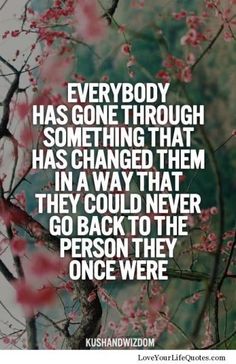
I came across a fascinating article on CNN.com this morning, on infidelity by women and some of the reasons why they cheat.
It’s definitely worth a read, but for a quick overview it talks about how there has been a 40% rise in the number of women who admit they have had affairs in the last 27 years; while the incidence of affairs for men has stayed fairly static during the same time span.
In looking at reasons, the article cites things from feelings of resentment due to a disparity in the amount of labor that goes into maintaining the life and the marriage, to basically boredom in the marriage because marriage has turned out to be something very different from what they expected it to be.
I’ve been writing about these things for years, so nothing in there really surprised me.
But at the same time, reading the article kind of pissed me off.
ESPECIALLY when it talks about people who were able to admit that they had a pretty good life. They had a good friendship with their husbands, they had built a life together, had a family with children that they were raising together. Really they had a lot of things, but at the same time they felt that there was some need that wasn’t being met inside the marriage, so they started going outside of the marriage to try and fill that need.
As the article stated:
In an earlier generation, this might have taken the form of separation or divorce, but now, it seemed, more and more women were unwilling to abandon the marriages and families they’d built over years or decades. They were also unwilling to bear the stigma of a publicly open marriage or to go through the effort of negotiating such a complex arrangement.
These women were turning to infidelity not as a way to explode a marriage, but as a way to stay in it.
Turning to infidelity not as a way to explode a marriage, but as a way to stay in it?
Give me a f*cking break.
The narcissism of that statement is mind boggling to me. And sadly, I know that many people buy into that exact line of thinking as a way to rationalize their own behavior to themselves.
Let me phrase that idea in a slightly different way…
Hmmm, I “like” my husband. I like the life/lifestyle we’ve built. I want my kids to grow up in a home with both parents full time. But there’s something missing, and I want more. At the same time, I’m not willing to give up what I’ve built in order to go take a chance at trying to find something more. So I’ll just try to keep what I’ve built, and go do whatever I want on the side. After all, I “deserve” to be happy.
It’s a load of crap, it’s selfish, and it’s driven purely by ego. I’ve heard some people use the excuse that they are doing it (“staying” in a marriage where they are checked out) “for their kids” but that’s another cop out. It really amounts to:
I want this.
I deserve this.
I’m entitled to this.
I want to have my cake, and eat it too.
These sentiments seem to be on the rise. And they are sentiments that are all about you.
Yes, people can look out for themselves. And doing so isn’t necessarily a bad thing (in fact, sometimes you need to).
Here’s the thing about life though – you don’t get to pick and choose the things that work for you while ignoring and avoiding the things that don’t.
Perfection doesn’t exist. EVERYTHING comes with both good AND bad, and as individuals it’s up to us to choose things where we believe the good makes the bad worthwhile. We need to try and find something that is enough for us.
I’m a parent, and there are times that it’s very rewarding but there are also times that it’s extremely challenging. I can’t just be there for the good stuff, and the fun stuff. In fact I would argue that the challenging times are often the times that are most important to my children. Those are the times where they need me the most, and HOW I respond to them in those moments has the biggest impact. They may not be easy times for me personally, but they’re pretty damned important.
I have a pretty good career, and there are some parts of my job that I really enjoy. There are also parts of my job that kind of suck. I can’t just do the stuff I enjoy and ignore the rest.
Well, I could.
But I would be pretty delusional to think I could do so while still holding onto my job.
And that’s exactly what this mindset is about.
It’s delusional.
It’s about focusing on me, and what I want in the moment.
The article is about women’s affairs, but I don’t want to give the impression that this is a mindset that is unique to women, because it’s not. In fact, when the article talks about the 40% increase in affairs by women it’s probably because they are catching up to men in the frequency of affairs.
Look, I’m all for equality.
But I don’t care if men have been doing it for years, of if lots of people cheat.
That doesn’t make it alright.
I think this increase in focusing on “self” is a social problem (if you see it as a problem, which I do), where people have increasingly put themselves and their immediate needs and wants at the center of everything. Where people believe they have a “right” to happiness, and they believe they should be able to “have it all”.
It’s a broken mindset.
The article mentions that people often have needs that were not being met inside their marriage, so they choose to go outside the marriage to get them fulfilled.
Yes, people have needs.
Yes, couples have problems and sometimes marriages and relationships aren’t very fulfilling.
However I’ve always believe that when faced with a problem in life you have three choices:
- Accept the problem as it is (in which case it’s a want, and not a need)
- Try to make the problem better (bring something that is unacceptable up to an acceptable level)
- Decide it is truly a problem, and the current situation is unacceptable
Comparing this approach to unmet needs in a marriage, if you are able to accept your situation because you realize it’s a want, but not a need, then good for you.
However that’s probably not a great option, because if you’re unhappy then probably something is wrong, and it would be good to have positive change.
So option two becomes working on the problem. This involves communicating it, and being open to the possibility of positive change.
And I think this is where things really fall apart for most couples.
One person is convinced that they have communicated their need/want, while it reality their partner really doesn’t get it. Then to make things worse, the frustrated person ends up closing the door to positive change, because they believe they have tried and are not being heard. When that happens, once the other person does get it, it’s too late. Because their partner is no longer willing to accept their efforts.
This is likely where many affairs come in.
But affairs are a cowards way out.
If it truly is a need, and it is truly an unacceptable situation then the real solution here is option 3.
If the current situation is so bad, get out.
It doesn’t matter if you have a nice lifestyle, family, friends, kids, or if it will be hard on your own. If your needs aren’t being met to the point that you want to cheat, get out.
If the benefits of lifestyle, family, friends, kids, whatever are worth staying for, then don’t cheat.
It’s called integrity.
Your actions don’t just impact you.
Make choices, and make ones that are right for you.
But understand consequences.
Understand who will be impacted by your choices. And then, after weighing those things make the choice that’s best for you.
I have no problems with someone leaving an unhappy marriage.
But I have huge problems with someone thinking they can just do what they want to pursue their own needs/wants without caring about how it impacts their partner.
Part of the beauty of marriage is having someone to be with you, to share experiences, and to grow old with.
So tell me, why in the world would you ever want to grow old with someone who has so little respect for you that they are willing to cheat on you? Why would you want to share your life with them?
Because that’s sure not love.
- Accept things
- Work to improve things
- Or walk away
Each of those choices I can accept. Each involves courage.
But cheating, and then rationalizing it to yourself as “a way to stay IN the marriage”?
That’s not a marriage I would want any part of.















